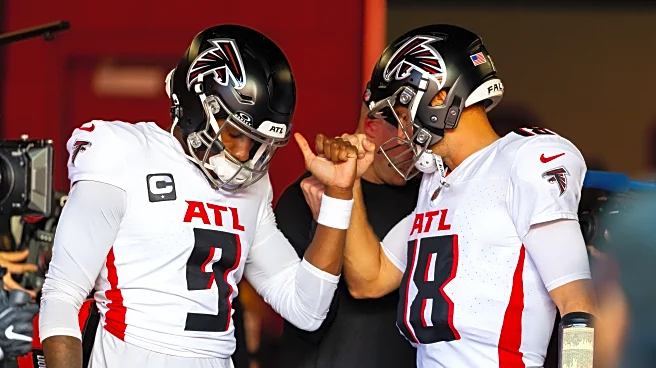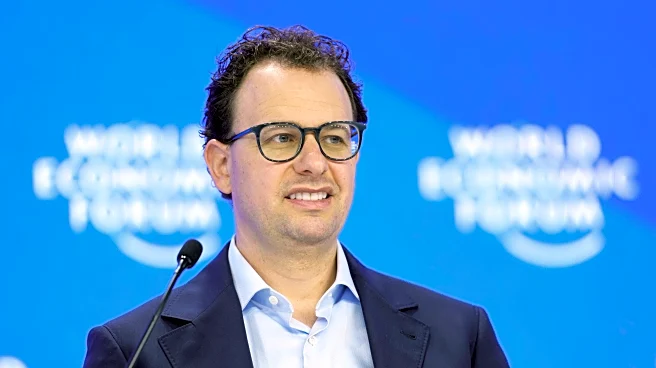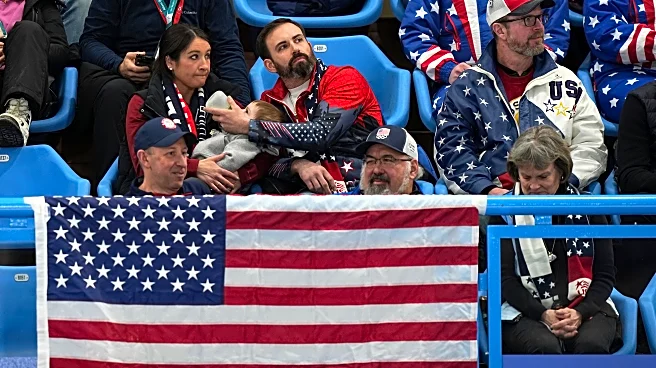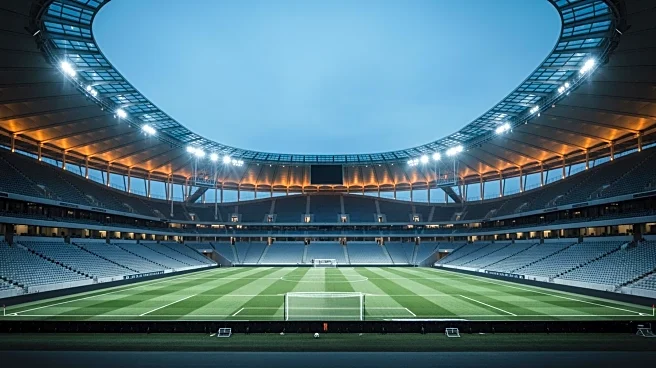For two quarters and change, things were going well for the Atlanta Falcons. Then Michael Penix Jr. went down,
It’s not just that the season is over at 3-7, though the season is over. It’s not just that Penix
is hurt, although he is. It’s that Penix’s injury occurred during a game where he was rolling along and showing the team what they had hoped to see, and that his injury is not just potentially season-ending but also apparently to his left ACL. Penix notably tore his right ACL twice in college, and if the damage is significant, he’ll be facing a long recovery from what’s reportedly a partial tear.
This is a terrible outcome for player and team, for reasons that intersect but are also quite distinct.
Penix’s injury history could shorten his career
This was a concern when the Falcons drafted him, given that Penix had multiple serious college injuries. Two ACL tears, a broken collarbone, and an A/C joint separation are not minor ailments, but the Falcons were confident they wouldn’t linger or significantly shorten his career. An ACL tear on the left now means he’ll have two surgically repaired knees, and chances are that eventually that will catch up to him.
I wrote when the Falcons drafted Penix that he might, by virtue of his age and injury history, have a 5-10 year career instead of a 10-15 year one, but that it could be worth it if he was as good as the Falcons thought he could be. Through the first two seasons of his career, Penix has been an up-and-down player and now has another ACL tear to work through, one that will likely require anywhere from 6-9 months to return from. That means the Falcons can’t be certain he’ll be good to go for training camp, and that’s coming in the third season of his rookie career. Any lengthening of his recovery timetable might help him prevent re-injury, but it will mean the Falcons have to have a great insurance policy for early 2026.
Available research indicates that quarterbacks are more likely to return from ACL tears without significant performance drops and have longer careers post-surgery than other positions, but this is a third tear for Penix. We’d have to be gullible as hell to believe this will have no impact on his longevity and availability going forward, and this is a franchise that can no longer afford to have that lack of imagination. The fact is that no surgically repaired ligament is going to be 100%, and even if the risk of another tear is only slightly elevated, NFL players absorb big hits and bend limbs at unnatural angles all the time in a way that heightens that risk further. If Penix is still the 1A plan at quarterback—and he will be unless he simply can’t go—the Falcons have to have a compelling 1B.
But for Penix, this just sucks. His flaws were on full display throughout this season, but at times those tantalizing strengths were there and he was delivering crisp passes anywhere he wanted to with authority. The thought that we may have to wait a long time to see or never see the best version of what Penix can be is heartbreaking as a fan; I can’t even imagine what it’s like for him, having to battle through an injury like this again and confront an uncertain future while putting in months of rehabilitative work in service of getting back on the field and
The Falcons now have quarterback uncertainty…again
Two years ago around this time, the Falcons were confronting the fact that they had no long-term quarterback option. At the time, this was ruinous for Arthur Smith’s tenure with the team and the 2023 season, but Atlanta had invested just a 2022 third round pick in Desmond Ridder and a two-year, $14 million deal for Taylor Heinicke. Both were easy to escape, and the Falcons did so, trading both players away in the 2024 offseason. They had a chance to start fresh.
Atlanta invested about as many resources into the quarterback position as you possibly can during that offseason, signing Kirk Cousins to a massive multi-year deal and then drafting Penix with the eighth overall pick. As part of a pattern of this team weighing one position too heavily—even if it is arguably the most important position on the field—they thought investing those resources in quarterback would set them up to win right now and well into the future. Instead, both moves are now looking like catastrophes.
The common thread for both were injuries. Somehow, the Falcons did not really ask themselves what a 35-year-old Kirk Cousins coming off the first truly major injury of his NFL career would look, given that Cousins’ already limited mobility and mechanics would obviously be tested by recovering from an Achilles. Cousins did some very good work for a few weeks and then fell apart entirely thanks in part to an injury suffered against the Saints, and a year later and supposedly much healthier he looks…like a 36-year-old quarterback who is not the same player he was. The Falcons spent a lot of money and will continue to spend a lot of money for a guy who would need to suddenly turn the lights on in a major way to justify not just sticking in Atlanta past this season, but also a starting quarterback job in the NFL anywhere in 2026 and beyond.
And now injury has come for Penix. Past ailments are not necessarily indicative of future outcomes, and the Falcons had expected to have Penix sitting and learning longer than they did. But they believed in the talent and waved away age and injury concerns because of that, and now even their hand-picked franchise quarterback is not a lock to be out there and performing at a high level early in 2026.
When you expend the resources the Falcons did to solve your quarterback problem and you end up here less than two full seasons later, that’s a nightmare. I recognize there was real upside with both moves—I wasn’t thrilled about Cousins but he had the track record, and I really liked Penix’s arm and ability—and that Penix’s story in Atlanta is not written just yet, with an opportunity for him to overcome this injury and become the player he and the franchise want him to be. But there’s real uncertainty about that outcome and near-certainty that the Cousins move has not worked out. That could lead to widespread changes in Atlanta, and it could mean massive changes to the quarterback position as soon as this coming spring.
When you treated the 2024 offseason like a referendum on your quarterback group, took a prospect top ten because you reasoned you would not have a chance to pick in the top ten again any time soon, and then made a trade that may well end up depriving you of a 2026 top ten pick…well, you’re technically correct. But not spiritually. The Falcons took a couple of very big swings, and neither one has worked out; they’re on track for an eighth straight losing season.
Obviously this is a dour article because this is a dour moment, but I don’t want to dismiss Penix out of hand. I’m still a believer in the talent, and if he can get back next summer and build on the stop-and-start progress he made in 2025, there’s still a chance for him to deliver multiple seasons of franchise-level play. I want to stress that for myriad reasons—Penix being under contract for three more seasons, the fact that he’s already here, the upside he has, and the investment the team has made in him—that’s the best-case scenario and one we should all be rooting for. I’ll be pulling hard for Penix to make a full and swift recovery and deliver as the clear-cut Falcons franchise quarterback in 2026 and beyond.
But with the uncertainty at the moment around the full extent of Penix’s injury and his timeline, the likelihood the team will cut Cousins in 2026, and Atlanta’s increasing desperation to win enough games to avoid a losing season for once, they’re going to need to reimagine the quarterback position regardless. This injury is a disaster for player and franchise alike, one that could have an outsized impact on Penix’s career and force the Falcons to once again shop for a starting-caliber quarterback in the offseason, just two years after believing they had solved the position for a long time. In a season full of depressing developments, nothing’s worse than this one.












